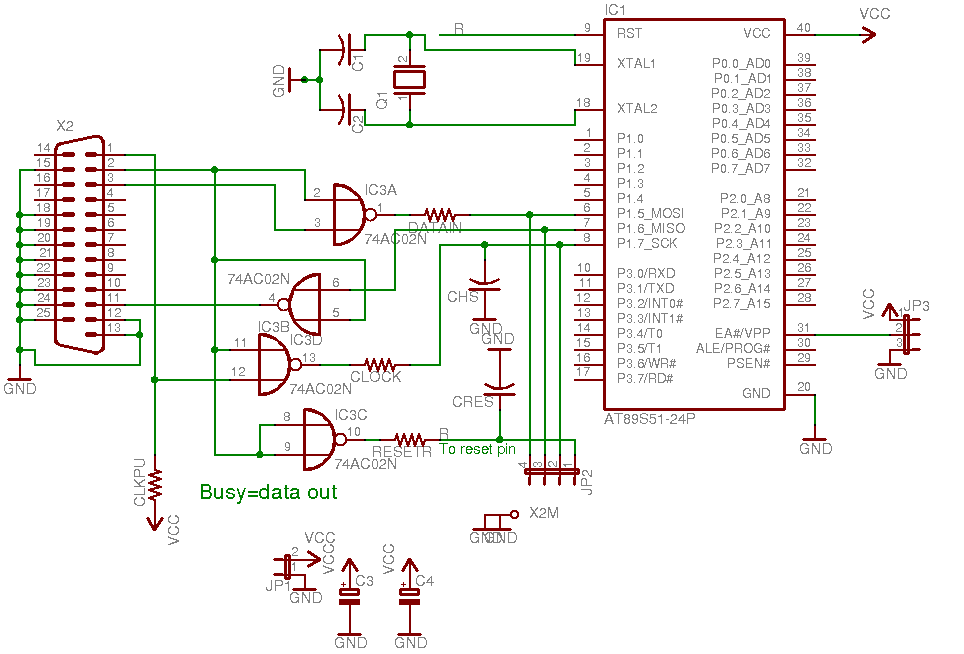This is my programmer circuit:
I decided to try the HCT version of the nor gate (74HCT02) and I also decided to omit the capacitor to the reset. I selected 10K for all resistors except for reset, I used a 220 ohm resistor.
I did a very basic reset test on two different computers each with a parallel port.
Computer 1 is an old IBM pentium 4 with a built-in parallel port. I ran tests in Qbasic for DOS from a boot CD with no other drivers loaded.
I did the following test and got the following results on Computer 1:
Output value 1 to 378h. Got returned value C7h from 379h (seems normal) Output value 0 to 378h Got returned value 47h from 379h (seems normal)
Now Computer 2 is linux with only the basic parallel port driver loaded and with ACPI extensions disabled but the tests are awful. Here's the results:
I did the following test and got the following results on Computer 1:
Output value 1 to 378h. Got returned value C0h from 379h (seems normal maybe) Output value 0 to 378h Got returned value C0h from 379h (somethings wrong)
Whats weird is that neither parallel port is damaged and I always run circuit tests on computer 1 before I use the circuit in computer 2.
So then I thought use 10K pull-up resistors on the data input lines, but that made no difference at all.
Is there some modification I can perform in my circuit to make it work with ALL parallel ports instead of only certain ones?
I also tried disabling the parallel port drivers in linux one-by-one to see if I get more favorable results and I couldn't.
On both computers I setup my port to SPP with no bidirectional capability and same address on both computers (378-37Ah)
And yes I have tested the reset line on my circuit with a voltmeter when I ran the tests and that part responded normally.


avrp, there may be some useful hints in the documentation, \$\endgroup\$